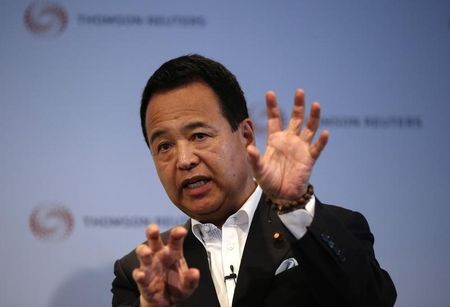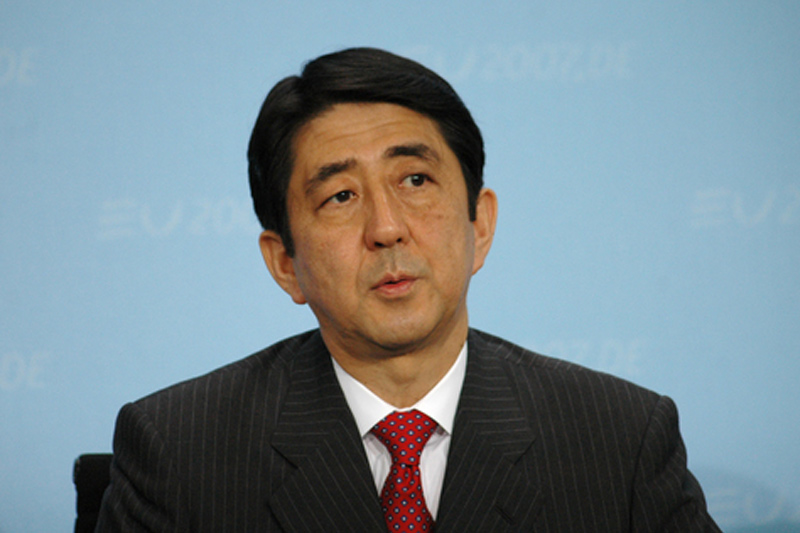By Stanley White and Tetsushi Kajimoto
TOKYO (Reuters) - Japanese Economics Minister Akira Amari said on Friday that Prime Minister Shinzo Abe cannot delay a sales tax increase indefinitely, suggesting that Tokyo will not loosen its commitment to reducing public debt and balancing its budget.
If the sales tax increase were delayed the government would do its utmost to meet its targets for reducing the primary budget deficit and maintain trust in Japanese government debt, Amari said.
Finance Minister Taro Aso also stressed the need for fiscal discipline, suggesting that some members of the government are trying to combat the impression that a delay in the sales tax hike marks the beginning of a looser fiscal policy.
"Abe has a very strong commitment to fiscal discipline," Amari told reporters after a cabinet meeting.
"It is impossible for Abe to delay the sales tax hike next year and not clearly state when the sales tax will rise again."
A government source has said Abe is likely to delay a sales tax to 10 percent from 8 percent that was originally scheduled to go ahead in October 2015 due to fears this will derail the economy.
Domestic media reported that the delay could be officially announced as early as next week.
The tax hike is part of a plan to help fund rising welfare costs and ease Japan's debt burden, which at more than twice the size of its $5 trillion economy is the worst in the world
However, many politicians started to lose faith in this plan after a sales tax hike in April to 8 percent from 5 percent sparked the biggest economic slump since the 2009 global financial crisis.
The Bank of Japan last month shocked markets by expanding its already massive stimulus in an effort to re-energise a fragile recovery and stoke inflation.
Amari insisted that even without the second sales tax hike the government can meet its target of halving the primary budget deficit as a ratio to GPD in fiscal 2015, and further reducing this deficit in fiscal 2020.
A primary budget excludes debt servicing costs and income from bond sales.
However, Amari stopped short of spelling out how the government could achieve these goals and also said more stimulus may be needed for the economy, raising concerns that the primary budget deficit will continue to worsen.
"If (the sales tax) is not raised to 10 percent, achieving the target will become hard," Aso said.

(Reporting by Stanley White; Editing by Chris Gallagher & Shri Navaratnam)
